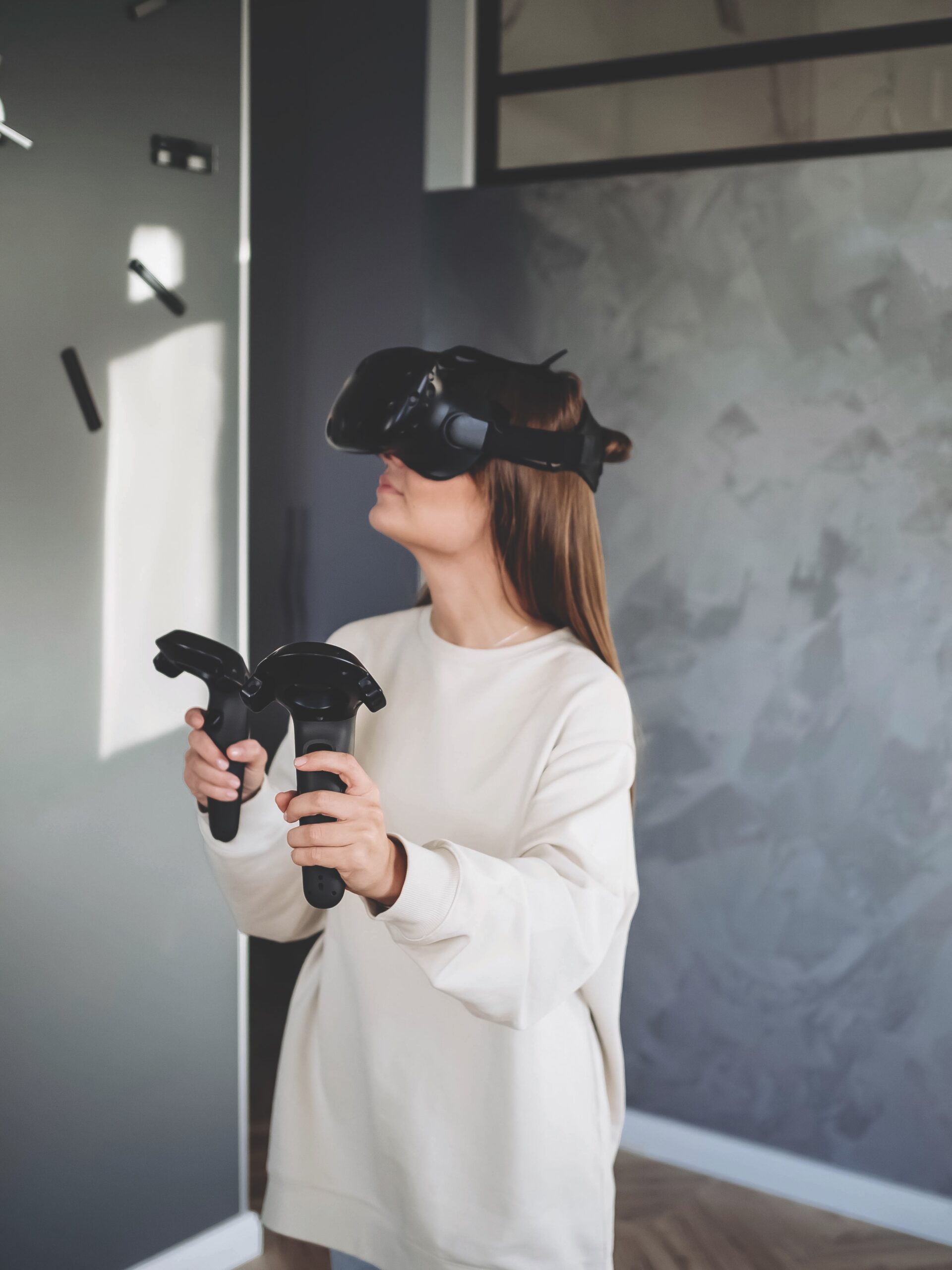For a year now, a team of VR developers in collaboration with industry experts have been building a Virtual Reality prototype that aligns with the goals of the DASBE project.
About DASBE
DASBE (Digital Academy for the Sustainable Built Environment) is a hub for upskilling, capacity building and education in the construction sector. DASBE will deliver skills in programmes covering the circular economy, energy efficiency and digital skills. DASBE is creating a range of rapidly developed programmes in response to the construction industry’s training needs. The project is funded under the Human Capital Initiative Pillar 3 by the Higher Education Authority.
A digital platform to host and signpost training courses for the construction sector is in development and this platform will be accessible to construction professionals in Ireland to upskill. This online platform will support learners to build their own training plan and upskill at their own pace. The accredited programmes from Level 6 to Level 9 can be completed as traditional minor/major awards or shorter certificates, commonly referred to as micro-credentials. These can be completed in 5 credit modules with 30 hours of contact time. DASBE is also developing Virtual Reality tools and the first Virtual Reality educational prototype has been created.
Virtual Reality Educational Tools
For a year now, a team of VR developers in collaboration with industry experts have been building a Virtual Reality prototype that aligns with the goals of the DASBE project. TUS are exploring VR as a supplementary tool for education and training.
The DASBE Virtual Reality educational prototype, which is the first of its kind at higher educational level in Ireland will engage learners in several tasks such as detecting and analysing building defects in a traditional building (pre 1940s). This VR tool has been developed for a new TUS accredited Certificate in Energy Renovation of Traditional Buildings, which is supported by The Heritage Council.
What is Virtual Reality and why is it developed as an educational tool?
For those new to the concept of Virtual Reality, VR, uses 3D-generated images to immerse a user into a simulated environment, so that they feel like they are actually there, and the virtual environment responds to their actions. Using the Unity Real-time game engine, our DASBE team have created the first prototype aimed at the detection of building defects and the analysis in an old thatch cottage. The learners are immersed in a 3D experience using Oculus Quest 2 headsets and enter the cottage using Oculus Touch Controllers to move around and teleport to different rooms. These devices also control several inspection tools required for the job – borescope and camera, scraper, and moisture meter. These are carried in the learner’s virtual belt as initial inspections are carried out. The learner moves around the interior of the house looking for building defects, moving furniture, and looking behind several objects. After locating the building defects the learner will assess why the building defects occur.
For beginners you can start in the training centre, getting familiar with the fundamentals of using the handheld devices and understanding when and where to use the inspection tools. The experience leads learners to a classroom where questions can be answered in the form of quizzes which are being developed in several ways such as drag and drop, choose the answers using multiple choice. Several alternative assessment ideas are also in progress, so watch this space!
Why use Virtual Reality in Education?
The argument for using VR is simple – VR-based learning activities can help to train learners to experience and engage in complex jobs. It is often difficult to arrange a site visit to access a real-life building or construction site, as health and safety conditions prevent this availability, so being able to experience access to buildings using VR is certainly an alternative.
Training in real world settings or onsite can come with many potential hazards. In relation to the DASBE Certificate in Energy Renovation of Traditional Buildings, students visiting old buildings which are often unsafe, is not an ideal learning environment. Safety concerns can include building decay to the presence harmful substances and materials. DASBE’s VR prototype removes the possibility of harm or any other unintended consequence of working in an old traditional building.
VR enables students to learn through practical experience. Experiential learning has long been recognised as one of the most effective ways to learn through combining “visual” and “doing” actions. Studies have shown that learning through experience increases the quality of learning, and knowledge retention levels, increase engagement, and learners can be trained in safer, more cost-efficient, and repeatable ways.
As virtual reality and digitalisation use advances in the construction industry, using this hands-on VR educational prototype can easily be adapted and developed further for use in other construction needs.
The design and development of the next prototype is currently in exploration by DASBE partners. Features include:
- high-fidelity real-time graphics, and artist tools
- multiplayer framework, real-time rendering of visuals, and a flexible editor.
- It is easy to add animation, sequence, audio, simulation, effects, etc.
- You can create your 3D pipeline with modelling, rigging, animation, simulation, rendering, and motion tracking.
Virtual Reality in the Construction Industry
Virtual reality is now in its tenth year as a useable product, however, it remains a young technology. It is still in the process of merging with current training methods and industries.
This technology is likely to be a huge part of the construction industry going forward and has unlimited potential in terms of where it can be applied. This technology is suitable and, in some way, applicable to many industries.
- More information on The Certificate in Energy Renovation of Traditional Buildings
- More information on DASBE Courses

